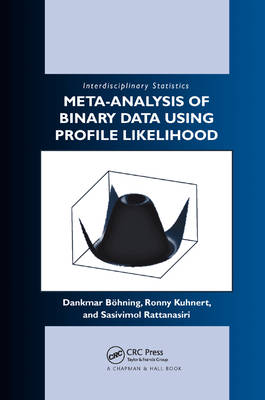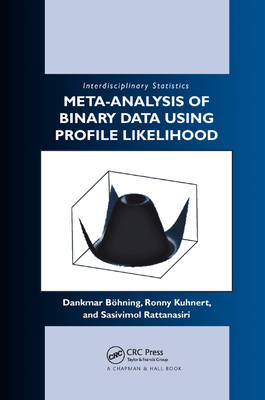
- Retrait gratuit dans votre magasin Club
- 7.000.000 titres dans notre catalogue
- Payer en toute sécurité
- Toujours un magasin près de chez vous
- Retrait gratuit dans votre magasin Club
- 7.000.0000 titres dans notre catalogue
- Payer en toute sécurité
- Toujours un magasin près de chez vous
Meta-Analysis of Binary Data Using Profile Likelihood
Dankmar Bohning, Sasivimol Rattanasiri, Ronny KuhnertDescription
Providing reliable information on an intervention effect, meta-analysis is a powerful statistical tool for analyzing and combining results from individual studies. Meta-Analysis of Binary Data Using Profile Likelihood focuses on the analysis and modeling of a meta-analysis with individually pooled data (MAIPD). It presents a unifying approach to modeling a treatment effect in a meta-analysis of clinical trials with binary outcomes.
After illustrating the meta-analytic situation of an MAIPD with several examples, the authors introduce the profile likelihood model and extend it to cope with unobserved heterogeneity. They describe elements of log-linear modeling, ways for finding the profile maximum likelihood estimator, and alternative approaches to the profile likelihood method. The authors also discuss how to model covariate information and unobserved heterogeneity simultaneously and use the profile likelihood method to estimate odds ratios. The final chapters look at quantifying heterogeneity in an MAIPD and show how meta-analysis can be applied to the surveillance of scrapie.
Containing new developments not available in the current literature, along with easy-to-follow inferences and algorithms, this book enables clinicians to efficiently analyze MAIPDs.
Spécifications
Parties prenantes
- Auteur(s) :
- Editeur:
Contenu
- Nombre de pages :
- 208
- Langue:
- Anglais
- Collection :
Caractéristiques
- EAN:
- 9780367387570
- Date de parution :
- 21-10-19
- Format:
- Livre broché
- Format numérique:
- Trade paperback (VS)
- Dimensions :
- 155 mm x 234 mm
- Poids :
- 294 g

Les avis
Nous publions uniquement les avis qui respectent les conditions requises. Consultez nos conditions pour les avis.






